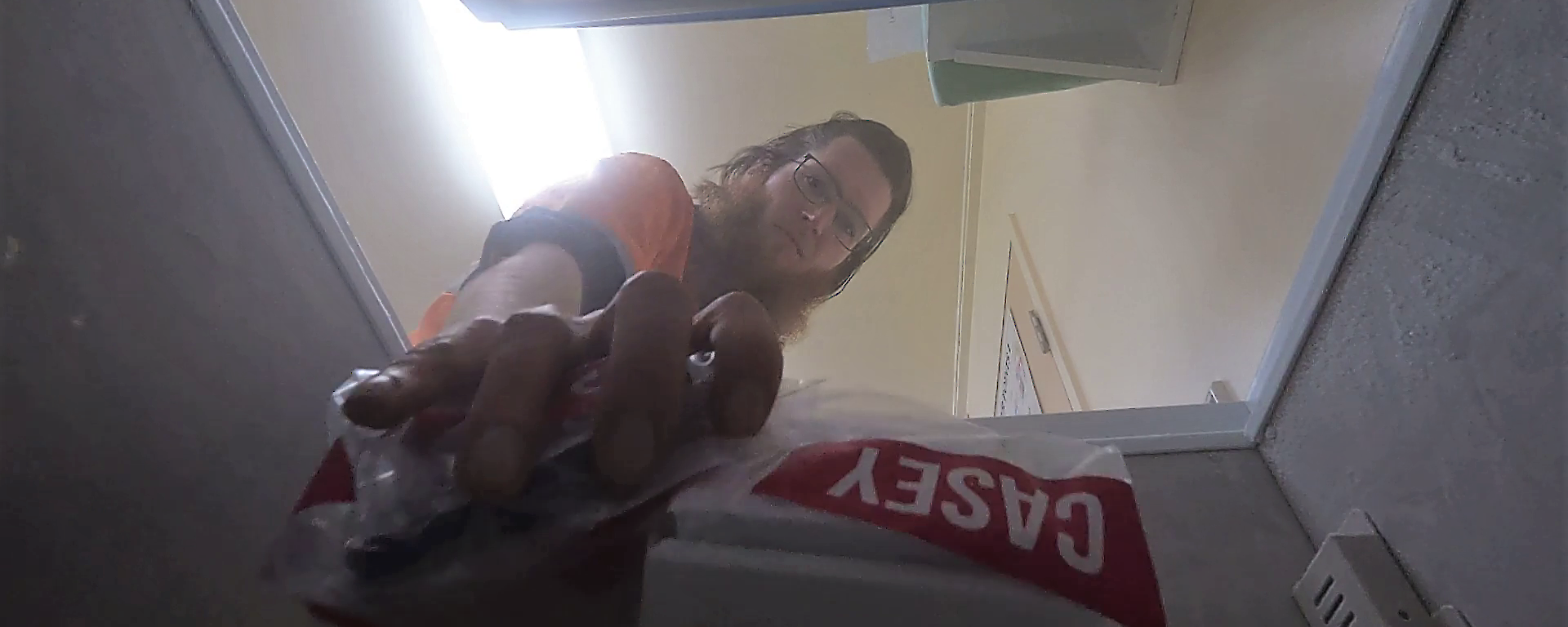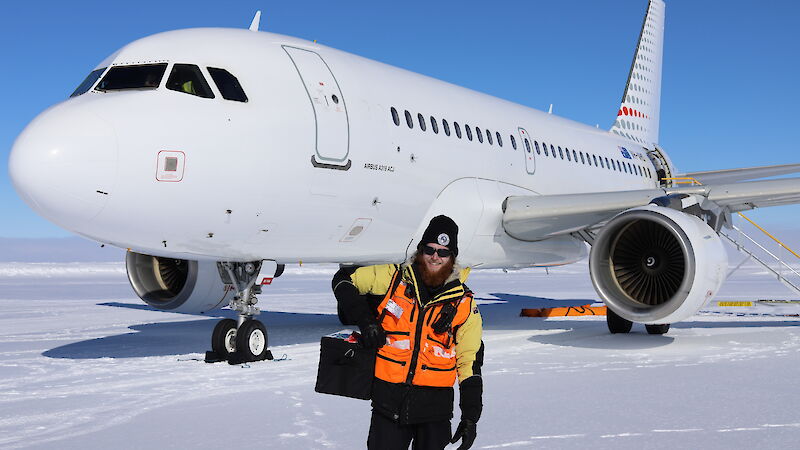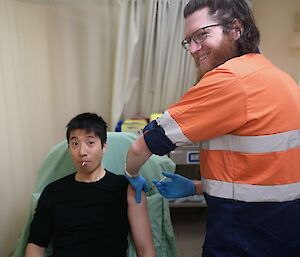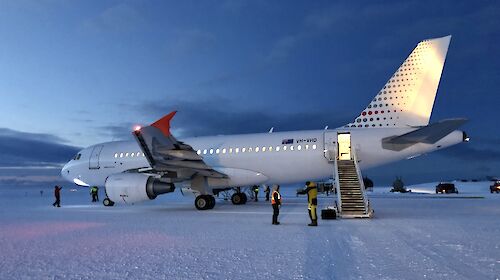The exercise is a reminder of the isolation Australia’s Antarctic expeditioners face each year and the detailed planning in place to support their well-being.
The expeditioners headed to the Antarctic before the COVID-19 vaccines were widely available in Australia.
As the Antarctic season looms and as expeditioners prepare to head home, it is important that they can join the national surge in COVID-19 vaccinations.
Cold chain
Australian Antarctic Division (AAD) Chief Medical Officer Dr Jeff Ayton said the vaccines were sent frozen in a small container.
“This has been a great achievement made possible by months of careful planning,” Dr Ayton said.
“This wasn’t a simple delivery. We had to ensure the vaccine was stored at the right temperature from its arrival in Hobart, delivery to the plane, the flight to Antarctica and then the four-hour journey across the ice to the station.”
“These expeditioners left Australia before the vaccine was widely available and have been totally isolated since. Vaccinating these remotest Australian communities will reduce the risk of serious and life threatening illness from COVID-19.”
The vaccines will now be administered to expeditioners by the station doctor who has undergone training.
The complex process was carried out with the ongoing support of the Department of Health and the Department of Foreign Affairs and Trade.
Vaccines for all research stations
“The delivery also had consignments for Davis and Mawson research stations, which will be transported during the season,” Dr Ayton said.
“Final logistics planning is underway given the complexities, distances and various transports to each station, including Macquarie Island.”
AAD Director Kim Ellis said a comprehensive suite of COVID-19 prevention measures had been developed by the Polar Medicine Unit.
“We can’t rely on a single measure to reduce the risk of COVID-19 reaching our stations and people,” Mr Ellis said.
“Expeditioners travelling south will need to be fully vaccinated before transiting on our ships and planes to Australian Antarctic stations and field camps.”
“Other requirements for expeditioners include two weeks pre-departure quarantine, testing and health monitoring prior to departure, during training, in transit and on arrival.”
Australia’s four research stations – in Antarctica Casey, Mawson, Davis and on sub-Antarctic Macquarie Island – are all equipped to test for COVID-19.





